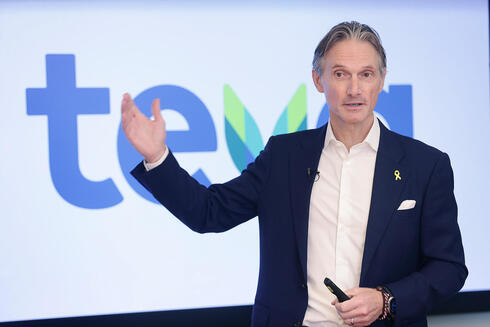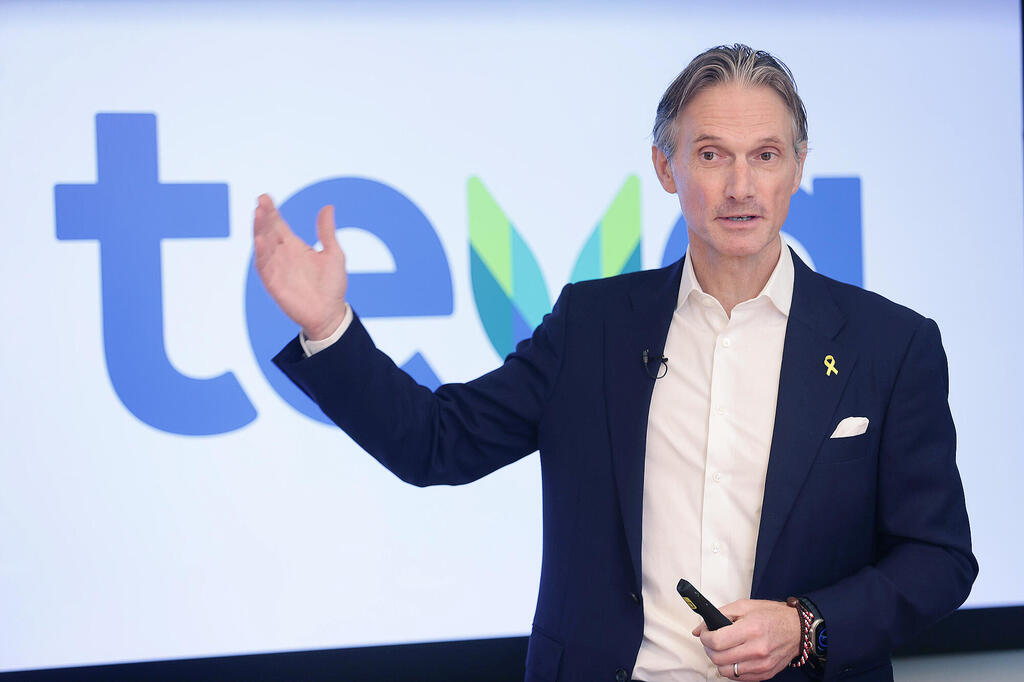
Teva settles $750 million tax dispute with Israeli authorities
The deal with the Israel Tax Authority resolves all pending litigation related to taxes payable for the years from 2008 to 2020
Teva CEO Richard Francis continues to address the issues he inherited from his predecessors, and this time it is also aligned with the needs of the Israeli Ministry of Finance. The pharmaceutical giant announced a settlement with the Tax Authority, agreeing to pay $750 million, or about NIS 3 billion, for tax assessments covering the period from 2008 to 2020. Although this seems like a significant amount, it is only a third of the state's original demand from the company.
Of the total $750 million, $500 million is a tax on the retained profits due to Teva's classification as an approved enterprise under the Encouragement of Capital Investment Law, and $250 million relates to a dispute over allowable expenses. Teva will make these payments in installments until 2029, starting with a $50 million payment this year and annual payments of $140-150 million over the next five years.
The compromise was reached just before the case was to be heard by the Supreme Court this week, with the timing of the discussion set back in March 2023. About two years ago, during ongoing negotiations, the state auditor criticized the prolonged process for harming state finances. At that time, the tax assessment was NIS 6.9 billion for the years 2008-2016. The current agreement covers a longer period, extending to 2020.
Teva notes that there are no remaining open tax disputes or assessments with the Israel Tax Authority and emphasizes that this payment will not affect its annual revenue and profit forecasts. Additionally, it was agreed that if Teva decides to issue dividends in the future, it will pay a tax rate of 5%-7% on those dividends, up to a maximum of $500 million.
Whether due to pressure from the Tax Authority or the culmination of negotiations just before the Supreme Court hearing, this move aligns with Teva's strategy of reducing uncertainty. The efforts led by Francis since he took office about a year and a half ago are yielding results, with the company's stock price more than doubling over the past year, reaching its highest value in five years.
Francis' main strategies include focusing on developing innovative drugs, concentrating generic activities on more profitable drugs, selling the TAPI active ingredients division, and continuing to reduce debt. The prospect of dividend distribution, mentioned in the settlement with the Tax Authority, is already on the horizon.
According to Teva's annual forecast for 2024, revenues are expected to be between $15.7 billion and $16.3 billion, operating profit between $4 billion and $4.5 billion, interest expenses at $1 billion, and free cash flow between $1.7 billion and $2 billion.














